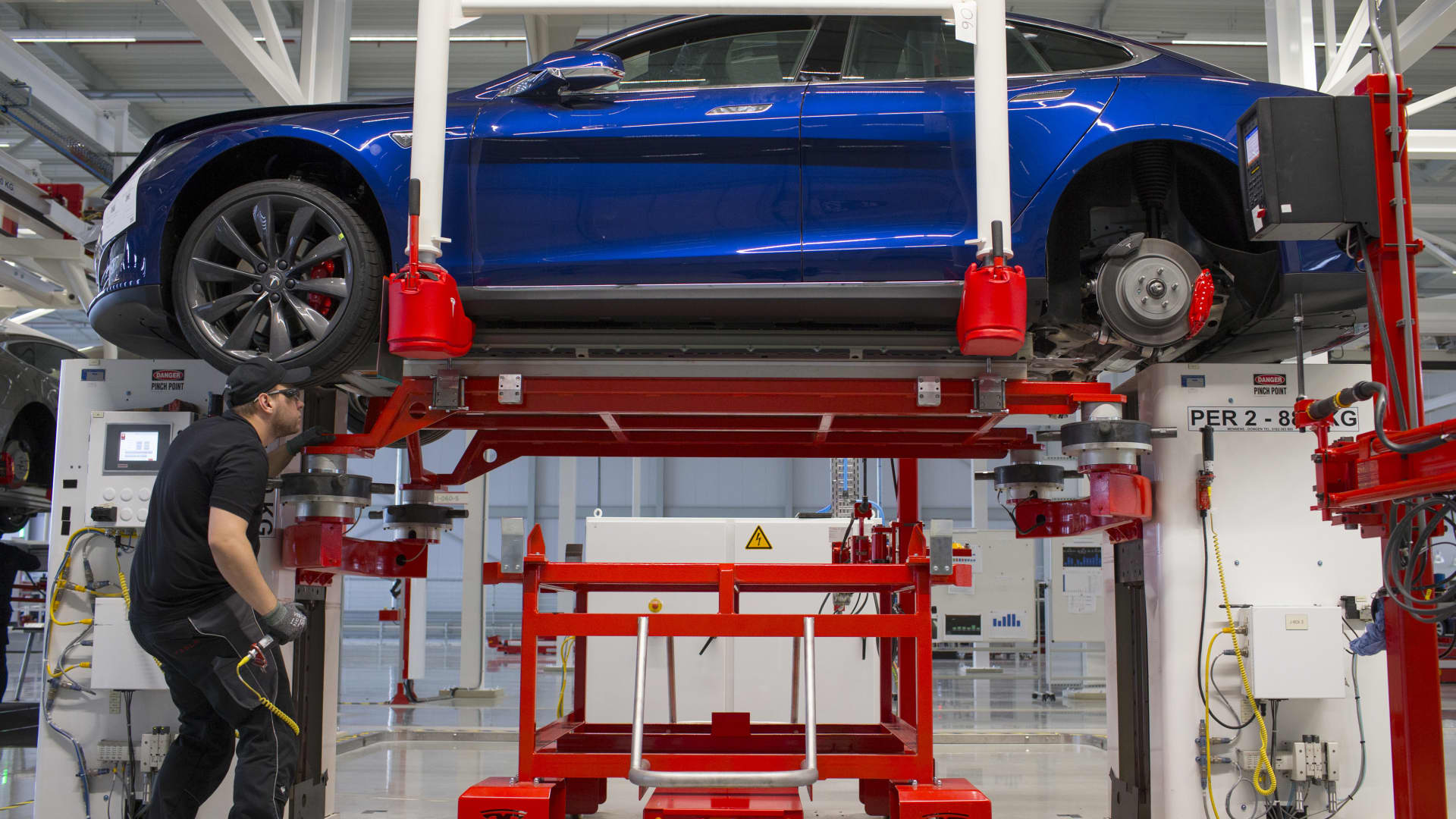It certainly will be part of the transition toward non-fosil burning vehicles but the states must find a way to force the electric auto makers to produce affordable vehicles. The majority of drivers simply cannot afford these 60K plus price tags and frankly, with the production costs lower, fewer moving parts and a few other factors, there is no reason for such high prices other than simple greed.
I think that the biggest contributor to their current high cost is their limited levels of production. If they were mass-produced to the same degree as gasoline-powered vehicles, I think that the cost would be similar. It won't be less like it should be, because capitalist greed, but they would become affordable. There's little point in making a product that people cannot afford to buy.
I'm all for electric vehicles and I say that as a car guy. I love tesla's as much as I love a big screaming V8, V10 or V12. That said, I'm not certain the world can produce enough batteries for an all-electric economy. Perhaps once electric cars start being taken off the road and batteries start being recycled things could be different. At the same time, 15 years is so far away that it seems like something politicians are saying just to make them look good. 2035 could roll around and they could "extend" that limitation for X reason for Y years.
It's a good goal to have less gas cars on the road and electric cars can be an absolute blast to drive, but I don't think "NO GAS CARS" is even a good goal.
The other side to this is that if we can produce enough energy we can make gasoline and diesel from things we pull out of the atmosphere effectively making cars and trucks carbon neutral
What has to be done is to look at Europe (which North America doesn't do nearly often enough). A huge amount of inter-city and inter-regional travel is done by electric rail. It's fast, inexpensive and electric. The real question is "Will the USA (and Canada for that matter) finally get off of our butts and build a proper high-speed electric rail system?" because that would have the biggest immediate positive impact. Existing rail lines could be used and all that would be needed to set it up would be overhanging wire supports like this one alongside the track to supply electricity to the train as it moves:
This is actually the norm in Europe and has been for years. Of all places, TEXAS has an electric rail system called "Texas Central":
Thirteenth Court of Appeals in Texas rules that Texas Central is both a railroad company and an interurban electric railway.

www.rtands.com
While these trains look rather futuristic, new rolling stock wouldn't actually be needed. I was talking to my father about this awhile ago because his career has made him a real expert on trains. He was a senior purchasing agent for CP Rail (Canadian Pacific Railway) for most of his life when their head office was in Montreal and has worked for both Alstom and Bombardier Transportation. He said that trains only use their diesel engines as generators for the motors that actually turn the wheels (ships use the same setup for their props) because the torque that these electric motors have is just astonishing and is what these heavy trains need to get moving and accelerate quickly.
To convert them to electric-only, all that would have to be done is for the electrical power source connectors to be moved to the top of the train instead of to the massive alternators that are spun by the diesel engines. It would be quick, cheap and easy to make the conversion because it would only really involve the removal of the diesel engines and their alternators.
The only reason it hasn't been done already is that the cost of the electrical infrastructure would be considerable and since everything in the USA is privatised (after all, to them, anything run by the government is communism), these corporations generally aren't willing to incur the cost. Texas Central is the exception that proves the rule but also proves that such things are possible in one of the most politically-backward states in the USA.
I'm personally embarrassed that Canada has no inter-provincial electric rail. We're so far-flung that it would only make sense to have an uber-fast electric rail system from Newfoundland to BC. Hell, we have around 2,000,000 lakes and over 8,000 rivers. That's more than enough hydropower to make electric trains in Canada that travel at:




